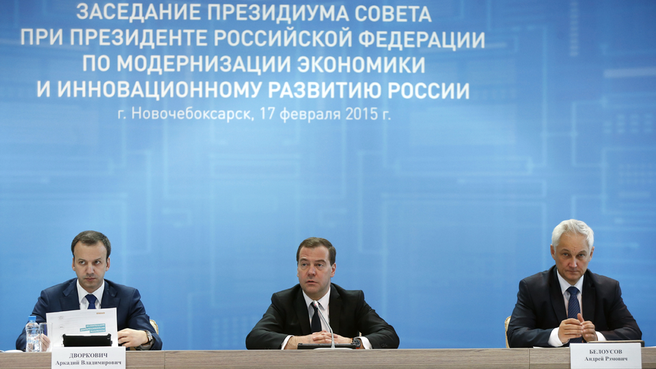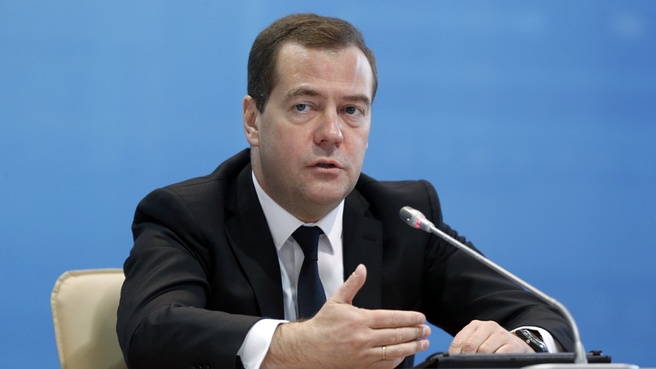Dmitry Medvedev's opening remarks.
Excerpts from the transcript:
Meeting of the Presidium of the Presidential Council for Economic Modernisation and Innovative Development
We are here today to discuss the regulation of intellectual property, or intellectual results. This is one of the key issues on our innovation agenda. I also suggest we focus on protecting technological innovations (for the most part referred to as industrial property), meaning inventions, useful models and prototypes.
Over the past few years Russia has developed a modern legal framework for this segment, whatever anyone says. It is somehow generally believed, even since we joined the WTO, that Russian law does little to protect the results of intellectual work, industrial property. This is not true. We do have modern legislation, which is being regularly developed and improved.
The most recent changes to Part 4 of the Civil Code entered into effect on 1 October 2014, specifying the procedures for exercising exclusive rights, stipulating more detailed regulations for relations between right-holders and users, and introducing additional institutions. Most of this lawmaking work was done following the President’s and the Government’s instructions, including the legislation on commercialising intellectual property created with government money. The unified state information and record system for civilian-purpose R&D results went online in 2014. This new database helps control the commercialisation of inventions created with government financing. This involves substantial amounts of government money channeled into new research and innovative development.
On the other hand, there aren't nearly enough international copyright protection documents for Russian inventions, which is certainly a problem. According to the World Intellectual Property Organisation, in 2013 Russia ranked seventh in terms of the number of national patent applications, and 25th in the number of international applications filed under patent cooperation agreements. This means that our intellectual property imports far exceed our exports: a difference by a factor of 11, according to the Rospatent patent agency.
Yet, there are success stories as well. Rosatom, for example, has significantly increased its income from licence agreements. The Skolkovo Foundation has established an intellectual property centre which has accepted and processed over five percent of all Russian international patent applications under patent cooperation agreements. The Foundation for Assistance to Small Innovative Enterprises has helped applicants obtain over a thousand protection documents for intellectual property.
One of the ways for the government to support companies and inventors is to simplify tax administration and improve their fiscal accounting systems. In particular, there is a proposal to exclude revenue that results from entering new intellectual property onto the balance sheet from the profit tax base.
Modern markets do not only value a product’s technical qualities, but also its appearance and industrial design. If we want to increase high-tech exports and protect Russian companies’ interests internationally, it is important to accede to relevant international agreements. There is an idea to join the Hague Agreement Concerning the International Registration of Industrial Designs. Russia has already signed it, but has not ratified it yet. We need to speed up this process.
Also, the information on new research results should be made more accessible, which means agencies have to publish it as open data.
Russia’s specialised intellectual rights court, which has heard 2,500 cases in 18 months, needs to keep working, and it is important to attract qualified technology and natural science experts to its work, in addition to lawyers.














